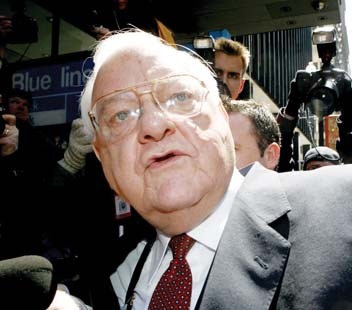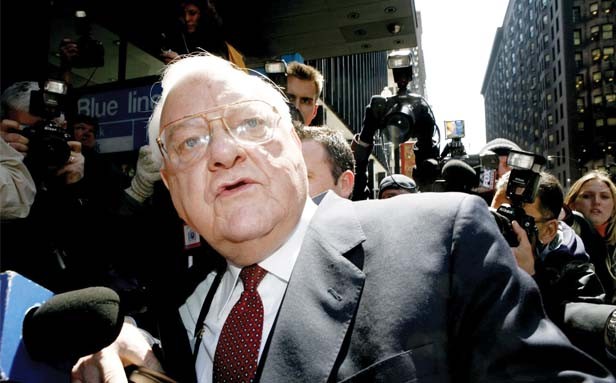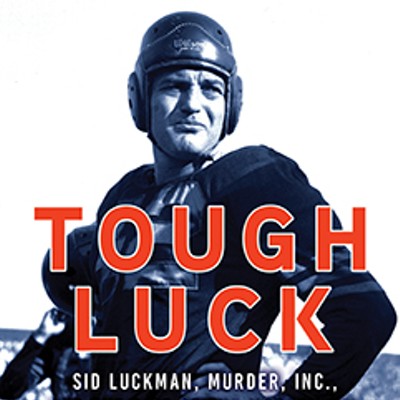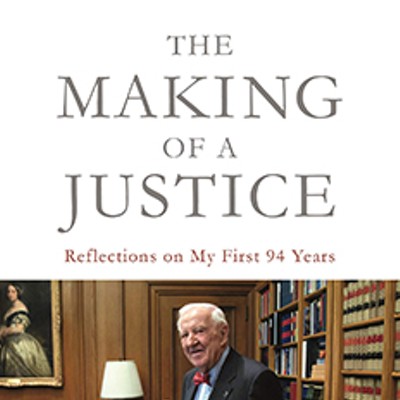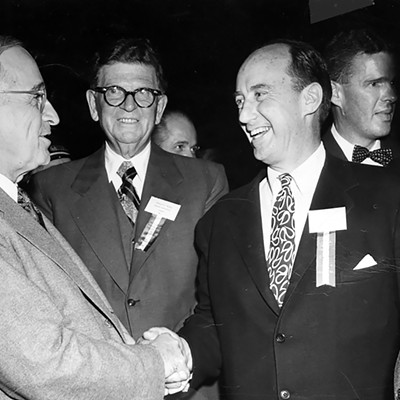In May, George Ryan’s son revealed that his father, late of the Executive Mansion and the federal pen, was writing his memoirs. Ryan fils promised it would be a “humdinger,” a “no holds barred book” that will “tell it like it is.”
We can only hope. It can’t be easy for a politician to plainly state any kind of truth after a career of avoiding it. Readers usually must be happy to get an anecdote or two of the sort that is told only at private fundraising dinners, and maybe some good gossip.
Readers’ enthusiasm for the political memoir is dampened by the fact that most people think that politics is either unimportant or dull. Typically, a former gov will confess in print that he backed the Veeblefetzer Act to secure his base against a primary challenge rather than as a payoff to the special interest that funded his campaign as was widely reported at the time. That sort of “truth” is greeted with almost erotic ecstasy by politics wonks, but to the public it’s all just politics.
A Ryan book has possibilities nonetheless. The ex-gov tends toward the choleric and he feels ill done by, both of which excite candor. The result can be something as stimulating as A Matter of Principle, the 2011 memoir by the disgruntled Australian-media-mogul-FDR-biographer-and-convicted-felon Conrad Black. Black is a bully, a blowhard and a bearer of grudges, but he also is a vivid writer and an astute judge of people not named Conrad Black. These include former U.S. prosecutor Patrick Fitzgerald (“notorious headline-seeking zealot”) and Big Jim Thompson, whom Black had named to the board of the company he was convicted for having looted. “To become the four-term governor of as large a state as Illinois shows that Jim Thompson had a very sharp political intuition,” Black writes. “Tall, loquacious, banal, simulating folksiness when not engaged in scowling righteousness, Thompson never in the ten years he was on our board showed any spark.”
I’ve read nothing better on Thompson.
I don’t expect anything as good from Ryan, alas. Defeated pols always promise to dig up the bodies buried by their former colleagues but they never do. They seldom even dare an insulting remark about the people they’ve worked against. Dan Walker for example thought Dick Daley to be vindictive, primitive and a bully; Daley thought Walker vain, ambitious and hypocritical. Yet in his memoir, The Maverick and the Machine: Governor Dan Walker tells His Story, all Walker said about Daley was that they “never really learned how to communicate.” Perhaps the tendency to dissimulate, essential in that trade, becomes so habitual that after a while the brain circuits that energize frankness atrophy altogether.
Nor do I expect a Ryan book to explain any more than it reveals. Politicians (with rare exceptions) can no more explain their careers or their times than a cork bobbing on the waves can explain ocean currents. Walker and Rod Blagojevich, for instance, wrote two dull books about two very lively administrations because of what they didn’t know. Walker’s was dull because he never learned much about politics, Blago’s because he never learned anything about himself.
It’s the inner motives for a man’s actions that have enduring interest. That’s why Lincoln scholars after 150 years are still scribbling away by the dozen like scribes in monasteries, trying to explain Lincoln. Blago’s book would have been a humdinger if he’d told that kind of truth about himself. Unfortunately, politics is not a business that encourages introspection in anyone, least of all in a narcissist like ol’ Rod.
Mr. Ryan might be wise to read a book that will at least teach him how not to write a political memoir. Shelby Moore Cullom is by most conventional measures Sangamon County’s most accomplished pol after Lincoln. He was elected city attorney in 1855, was a member of the Illinois House in the 1860s and again in the 1870s, briefly serving as speaker each time, served three terms in the U.S. House, served two terms as governor ending in 1883 and was elected to the U.S. Senate five times, retiring in 1913. In the course of that long career he encountered dozens of the most interesting people in an interesting era when the U.S. was reinventing itself as an urban, industrial nation.
Unfortunately, Cullom himself was “often ambivalent and always colorless,” as one historian judged him. His memoir, Fifty Years of Public Service, is exactly the sort of book one would expect from a man whom the Chicago Trib described as “the tall quaking ash of the Sangamon.” The Sangamon Valley Collection of his hometown public library has only one non-circulating copy. I’ve read it. Trust me – a copy placed on the open shelves would be non-circulating too.
Contact James Krohe Jr. at [email protected].

